
Congratulations to the following 2014 Society of Behavioral Medicine Achievement Award Winners!
Alere Research to Practice Award
Monika M. Safford, MD

Distinguished Research Mentor Award
Edward McAuley, PhD

SBM Distinguished Scientist Award
Judith K. Ockene, PhD
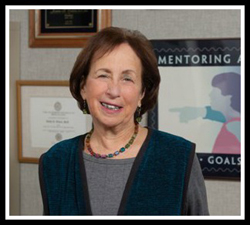
Early Career Investigator Award
Genevieve F. Dunton, PhD, MPH
Eli Puterman, PhD
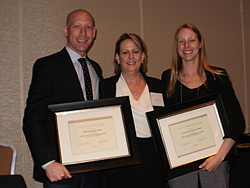
Outstanding Dissertation Award
Sara M. St. George, MA
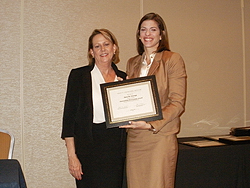
Distinguished Student Award for Excellence in Research
Stefanie De Jesus
Kristi E. Gamarel, EdM
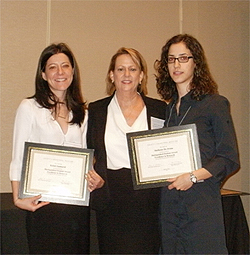
Distinguished Student Award - Travel Scholarship
Ashley Day
James J. Garcia
Jessica Krok
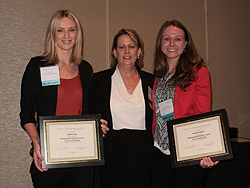
New SBM Fellows
Karen M. Basen-Engquist, PhD, MPH
Linda M. Collins, PhD
Thomas P. Guck, PhD
Robert W. Motl, PhD
Ryan E. Rhodes, PhD
Jennifer L. Steele, PhD
Kenneth Tercyak, PhD
Corrine I. Voils, PhD
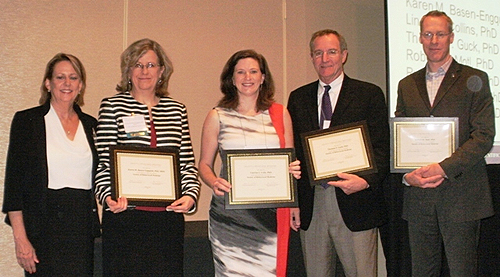
New SBM Fellows not pictured: Linda M. Collins, PhD; Ryan E. Rhodes, PhD; Jennifer L. Steel, PhD and Kenneth Tercyak, PhD
C. Tracy Orleans Distinguished Service Awards
Alan J. Christensen, PhD, Past President
Gary G. Bennett, PhD, Member Delegate
Geoffrey C. Williams, MD, PhD, Development Committee Chair
Elliot J. Coups, PhD, Program Committee Chair
Melissa A. Clark, PhD, Program Support Committee Chair
Ellen Beckjord, PhD, MPH, SBM Website Editor
SBM Special Interest Group Award Winners
Aging:
Jennifer S. Ho, Outstanding Student Research Abstract in Aging Award
Cancer:
Tammy A. Schuler, PhD, Outstanding Student Award
Bradford W. Hesse, PhD, Cancer SIGGIE
Child & Family Health:
Sean Phipps, PhD, Outstanding Dedication and Special Service
Bradley M. Appelhans, PhD, Outstanding Research
Sara M. St. George, MA, Student Award for Outstanding Research
Ethnic, Minority and Multicultural Health:
Susan D. Brown, PhD, Early Stage Investigator Abstract Award
Elizabeth McCallion, MS, Student Abstract Award
Evidence-Based Behavioral Medicine:
Neha P. Gothe, PhD, Outstanding Student/Trainee Award
Karen Oliver, PhD, Outstanding Dedication and Service
Health Decision Making:
Amy J. Jeffers, Outstanding Trainee Abstract
Military and Veterans’ Health:
Thomas H. Nassif, Patty Rosenberger Outstanding Student Abstract Award
Multiple Health Behavior Change:
Brittany L. Haltzman, Trainee Research Award
Obesity & Eating Disorders:
Lisa M. Nackers, PhD, MPH Graduate Student Research Award
Alyssa J. Matteucci, Graduate Student Research Award
Melissa H. Laitner, Graduate Student Research Award
Physical Activity:
Matthew P. Buman, PhD, Outstanding Dedication and Service
Elizabeth Awick, MS, Outstanding Student Abstract Award
Back on My Feet, Local Innovator Award
Pain:
Mindy L. McEntee, MA, Student Research Award
Spirituality & Health:
Kevin S. Masters, PhD, Distinguished Leadership Award
Elena Salmoirago-Blotcher, MD, PhD, New Investigator Award
Women’s Health:
Moé Kishida, Outstanding Student Researcher Award
2014 Annual Meeting & Scientific Sessions Recap
Elliot J. Coups, PhD, 2013–2014 Program Committee Chair
Lila J. Finney Rutten, PhD, MPH 2013–2014 Program Committee Co-Chair
As at least 1,707 of you know (the second highest attendance ever), this year’s Annual Meeting in Philadelphia was a great success! Philadelphia provided a wonderful setting for the meeting, the theme of which was, Behavior Matters: The Impact and Reach of Behavioral Medicine. A host of featured sessions illustrated the many ways that behavioral medicine impacts health and healthcare across diverse settings and populations.
The attendees represented more than 20 disciplines and many sessions featured cross-disciplinary team science approaches. Just over a third of the Annual Meeting attendees were students and other trainees and a number of sessions focused on relevant training, funding, mentorship, and professional service opportunities. Allison Vizgatis, a first-time student attendee, noted: “I attended a talk about Dynamical Modeling where engineers teamed up with psychologists to create a new theory about how to better predict behavior. I was captivated by the knowledge and synergy of the speakers. Each of them had a very different background of expertise, but were able to come together and create a concept that is teeming with collaborative ingenuity. It was nice to see an example of ‘outside of the box thinking,’ and be exposed to an exciting, new idea in the field.”
It was wonderful to see many informal discussions at the meeting among individuals at different career stages. Even brief interactions at the Annual Meeting can have long-lasting benefits and illustrate the collegiality of the society’s members and the behavioral medicine field more broadly. Michael Falconieri, an undergraduate student at Ithaca College and first-time attendee at the meeting, remarked: “After one talk, a professor of psychology … took me aside and had a five-minute conversation with me because she was impressed by a question I asked. I was so giddy afterwards I could not hold back my smile. Overall going to a professional conference was the highlight of my college career. I truly hope to be able to attend another one by the time I graduate.”
Meeting attendees came from 18 different countries: Australia, Canada, Chile, Germany, Hungary, Japan, Korea, Mexico, Netherlands, New Zealand, Norway, People’s Republic of China, Portugal, Singapore, Sweden, Taiwan, United Kingdom, and the United States. And perhaps it is news to you that if you are a member of SBM, you are automatically a member of the International Society of Behavioral Medicine (ISBM; www.isbm.info). If you aren’t already planning to do so, consider attending ISBM’s 13th International Congress of Behavioral Medicine, which is being held in Groningen, The Netherlands, from August 20–24 (www.icbm2014.com).
We were delighted to again have a mobile app for the meeting, which was well-utilized and generated a lot of positive feedback. We also appreciate the helpful suggestions that people provided, many of which we hope to include in next year’s meeting app. The meeting generated lively commentary on Twitter, with many attendees live tweeting during sessions and continuing discussions throughout each day. It is remarkable how much insight can be captured within the 140 character limit of a tweet: a writing lesson for us all, perhaps!
The 35th anniversary of the Annual Meeting provided an opportunity to review the history of the field of behavioral medicine. Drs. Marc Gellman and Sherry Pagoto put together an extremely informative poster timeline of the field (see www.sbm.org/UserFiles/file/Historyofbehavioralmedicinetimeline4-18-14.jpg), highlights of which include: the first use of the term “behavioral medicine” in 1973 in Lee Berk’s book, Biofeedback: Behavioral Medicine; the 1977 Yale Conference on Behavioral Medicine (which sought to define and outline the goals of the behavioral medicine field); the founding of SBM in 1978; the inaugural issue of the Annals of Behavioral Medicine journal in 1985; the first International Congress of Behavioral Medicine (in Uppsala, Sweden) and founding of ISBM in 1990; and the first publication of SBM’s journal Translational Behavioral Medicine: Practice, Policy, Research in 2011. The field has come a long way in its relatively short history and it is exciting to consider what the coming decades will bring for the society and the field as a whole.
We thank those of you who completed an Annual Meeting evaluation. Your feedback will help to shape next year’s Annual Meeting, which is being held in San Antonio, Texas, from April 22–25. Also, be sure to share feedback about the Annual Meeting and ideas for future sessions within the society’s special interest groups or SIGs (see www.sbm.org/about/special-interest-groups). As many of you know, the SIGs are a vital component of the society and play an important role in developing content and activities at the Annual Meeting. Some highlights of the SIG activities at this year’s Annual Meeting included a poster session flash mob (not as scary as it might sound!) organized by the Diabetes SIG, the Technology (formerly Behavioral Informatics) SIG’s popular breakfast preview of each day’s technology-focused sessions, and a session on career development award opportunities led by the Ethnic, Minority, and Multicultural Health SIG and the Education, Training, and Career Development Council.
The meeting would not be possible if it were not for the hard work of many individuals, including the members of the Annual Meeting Program Committee (Ellen Beckjord, PhD, MPH; Mary Cooley, PhD, RN; Brian Gonzalez, PhD; Camonia Long, PhD, CHES; Claudio Nigg, PhD; Jennifer Otten, PhD, RD, Margaret Schneider, PhD; Dawn Wilson, PhD, 2013–2014 SBM President; and Geoffrey Williams, MD, PhD), the SBM staff members (Alicia Sukup, Holland LaFave, Amy Stone, Ben Stumpf, Ryan Spannagle, and Tara Withington), as well as the many track chairs, abstract reviewers (all 381 of them), paper session chairs, and volunteers. We also extend sincere thanks to those of you who generously donated funds to cover the registration costs of an extra 13 student volunteers at this year’s meeting. As one of the volunteers noted, “[t]hank you again for selection into this year's volunteer program. Honestly, it was instrumental to me being able to attend for the first time and present a poster.” Another student volunteer, Melissa Rodriguez, remarked on additional benefits of volunteering: “I truly enjoyed being a volunteer this year at SBM. As I greeted people at the registration desk, I was able to meet presenters and other key investigators in the field. My experience as a volunteer allowed me to then network with ease at poster sessions and presentations.” We would also like to thank all of the attendees for their active participation in the meeting and we very much look forward to seeing you in San Antonio next April!
Physical Activity SIG Update
Physical Activity SIG Update
Jeremy A. Steeves, PhD, MPH, PA SIG Outlook Liaison
David M. Williams, PhD, Physical Activity SIG Co-Chair
Beth A. Lewis, PhD, Physical Activity SIG Co-Chair

The Physical Activity Special Interest Group’s (PA SIG) mission is to keep SBM members abreast of the latest developments and initiatives related to the physical activity field, provide opportunities for networking, and to serve as a forum advocating for the promotion of physical activity through various scientific activities.
A highlight of this year’s PA SIG meeting at the Society of Behavioral Medicine Annual Meeting held in Philadelphia, PA was the presentation of the local innovator award. We were delighted to present a check for $200 to ‘Back on My Feet’, a national organization born in the City of Brotherly Love-Philadelphia, that uses running to help the homeless change the way they see themselves and progress towards employment and independent living. With the help of its many volunteers, the Back on My Feet organization partners with six homeless shelters in Philadelphia to provide running programs. Runners (homeless residential members and community volunteers) begin running at 5:30 a.m. every Monday, Wednesday, and Friday and experience all the physical and emotional benefits of running and being part of a supportive community. Currently, Back on My Feet has chapters in 11 cities, where it helps members go the distance, one step at a time. (http://philadelphia.backonmyfeet.org).
Also at the SIG meeting, SIG co-chairs presented a summary report of the “physical activity science map,” which represents an effort to expand the number of professional connections within the PA SIG, leading to future collaboration and mentorship opportunities. The map was populated with information provided by a survey sent to SIG members following last year’s member meeting in San Francisco. Respondents were asked to identify their primary areas of physical activity research, as well as areas of research in which they are interested in gaining more experience. The next step in the PA science map initiative will be to re-circulate an updated version to solicit additional information from respondents, and to determine the ideal forum for dissemination of the results.
Congratulations to University of Illinois Urbana-Champaign, Urbana, IL student Elizabeth Awick, BS, for winning a Meritorious Award for her paper session presentation, “Does a home-based DVD-Delivered Physical Activity Program Increase Self-Esteem in Older Adults: An RCT.”
This year we welcomed Beth Lewis who was elected to serve as the new PA SIG co-chair. We look forward to the direction Beth and Dave Williams (2nd year as PA SIG co-chair) will take the PA SIG in the next several years, and would like to thank former co-chair (Matt Buman) for his service and leadership as his PA SIG co-chair tenure comes to an end.
Membership in the Physical Activity SIG remains high with 427 members, despite dropping 32 members from our peak membership (459) in 2013. We have an excellent balance of Student/Trainee (44%) and Full Members (43%), and a healthy share of Fellow (7%) and Transitional (4%) members.
I invite all SBM members interested in physical activity or physical activity research to contact me to discuss ways that they can be more involved in the PA SIG, and challenge the PA SIG to increase its membership in an effort to surpass our 2013 numbers at next year’s 2015 meeting in San Antonio!
We look forward to your attendance at next year’s PA SIG breakfast and business meeting!
Be Active.
Diabetes SIG Update
Caroline R. Richardson, MD, Diabetes SIG Chair
The Society of Behavioral Medicine integrates research, patient care and policy efforts to improve health through behavioral science. As part of its mission, SBM periodically releases position and policy statements. These policy statements can be cited in grants and presentations and provide concrete targets for guidelines and insurance plans. The Diabetes SIG would like to take this opportunity to update the general membership regarding recent position and policy statements specific to diabetes.
Diabetes Self-Management Education and Support
Diabetes self-management education improves disease severity, reduces complications, and lowers costs. However, only 30 to 40% of individuals diagnosed with diabetes receive self-management education. Surveying of health insurance plans indicates that approximately half cover diabetes self-management education. The most recent SBM position statement on diabetes “encourages legislation and other policies that require Medicare, Medicaid and Private Insurers to reimburse for DSM Education and Support 12 hours each year for everyone with diabetes”. Specifically SBM endorses these policy recommendations:
- Support policies and legislation which a) require Medicare, Medicaid, and private insurers to cover 12 hours of diabetes self-management education per year and b) eliminate burdensome requirements of physicians and providers in order to supply diabetes self-management education.
- Require health organizations to diversify diabetes self-management education delivery and approach and expand reimbursement options.
See the position statement on diabetes self-management for more details: https://www.sbm.org/UserFiles/file/diabetes-brief_statement_short.pdf
Quality Care in Diabetes
Current assessments of diabetes care quality focus on provider values and priorities such as testing glycosylated hemoglobin and foot exams. These aspects are crucial, yet insufficient, for disease control and quality care assurance. However, according to the SBM position statement, “…quality diabetes care must also recognize and reflect a patient centered approach, defined by the Institute of Medicine as "respectful of and responsive to individual patient preferences, needs, and values, and ensure that patient values guide all clinical decisions" (Heisler et al., 2002; Institute of Medicine et al., 2001)”.
Measures of patient behaviors and patient-reported outcomes need to be integrated into standard care. SBM recommends that standard care include measures of:
- Health behaviors including physical activity, dietary intake, medication taking, and smoking status
- Diabetes-specific and generic quality of life
- Patient self-management goals
- Patient-centered diabetes care
The SBM Diabetes Quality Care Statement is located here: https://www.sbm.org/about/public-policy/statements/diabetes-measures-of-quality-of-care
Diabetes Education Materials
If you are looking for high quality diabetes related materials for patient education and counseling with a particular emphasis on self-management check out the National Diabetes Education Program web site: http://ndep.nih.gov/. This web site includes a searchable database of print materials, videos, interactive web sites, and apps that relate to diabetes self-management. All of the materials have been screened by experts for quality and classified into a variety of categories for easy searching. Materials in a variety of languages are included in the database.
The Diabetes SIG would like to acknowledge and thank SBM members who contributed to the development and publication of these position statements including: Ben Gerber, Lisa Sharp, Edwin Fisher, the SBM Health Policy Committee and SBM Leadership.
Evidence-Based Behavioral Medicine SIG Update
Amy Janke, PhD, and Joanna Buscemi, PhD, EBBM SIG Co-Chairs
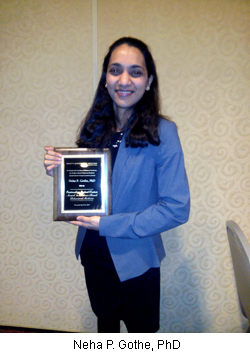
The Evidence-Based Behavioral Medicine Special Interest Group (EBBM SIG) is excited to report on our activities at the 35th Annual Meeting of the Society of Behavioral Medicine and plans for the upcoming year. We had a terrific turnout of SIG members contributing to our mission of advancing evidence-based medicine at our SIG-sponsored events. Here are some of the highlights:
- Karen Oliver, PhD, ended her term as EBBM SIG co-chair. We are so incredibly grateful for Dr. Oliver’s enthusiasm, commitment to and hard work for our SIG. Thank you for all of your contributions and we look forward to continued collaborations with you!
- Joanna Buscemi, PhD, was elected as the new incoming co-chair. Dr. Janke and Dr. Buscemi will be working in conjunction with our committee leaders on a number of the SIG’s initiatives and programming for next year’s Annual Meeting.
- Neha P. Gothe, PhD, won the EBBM SIG outstanding student/trainee award for her abstract titled “The Effects of an 8-week Hatha Yoga Intervention on Executive Function in Older Adults.” Dr. Gothe recently completed her PhD at the University of Illinois at Urbana Champaign in Kinesiology and now is an Assistant Professor at Wayne State University.
- We co-sponsored a pre-conference workshop that offered an interactive approach to understanding and applying the RE-AIM framework for planning and evaluation of interventions, with a particular emphasis on research-practice partnerships. Presenters included Paul Estabrooks, PhD, Russell Glasgow, PhD, Samantha Harden, PhD, and Rodger Kessler, PhD.
As you may have noticed from our offerings at the Annual Meeting, the EBBM SIG has been partnering with the Scientific and Professional Liaison Council (SPLC) to develop partnerships with organizations that may bring new synergies to our SIG membership and SBM as a whole. For example, we co-sponsored a symposium with the American College of Sports Medicine (ACSM) to describe the Exercise as Medicine initiative and discuss evidence-based strategies for increasing physical activity. Also, the EBBM SIG sponsored two events bringing leadership from the US Cochrane Center to speak at our Annual Meeting. First, Dr. Roberta Scherer, Associate Director, US Cochrane Center, presented at our SIG Breakfast Meeting on Preparing a Cochrane Systematic Review. She provided an outstanding overview of the details involved in the systematic review process. This was followed by a presentation by Dr. Kay Dickersin, Director of the US Cochrane Center, who discussed the process of Cochrane reviews and ways EBBM SIG/SBM membership can potentially collaborate on such reviews.
The SIG leadership has several projects planned for the upcoming year, but a primary effort will be to work with others in SBM to continue fostering our relationship with the Cochrane Collaboration. To achieve this aim, we hope to spend the year understanding and organizing our membership’s excellent efforts at evidence synthesis. As a first step towards this goal, we hope to have a survey out to our SIG membership soon to inquire about your interest and experience in systematic reviews and meta-analysis. This will help us more accurately identify our current membership expertise, lead to a more organized approach to connect with members conducting these reviews, and aid in connecting these members with other collaborators and organizations interested in evidence synthesis. So, keep an eye out for an email with a survey link soon!
Thank you to our SIG members who made our presence at this meeting such a success. We are already planning for next year’s meeting, so please reach out to us with ideas and suggestions for programming. As always, we welcome your further involvement with the SIG and look forward to seeing you the next Annual Meeting!
The Military and Veterans' Health SIG Focus on Integration
Katherine S. Hall, PhD, MVH SIG Outlook Liaison
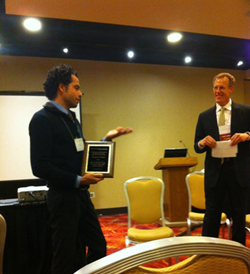
Dr. Thomas Nassif (left) receiving the first annual Dr. Patricia R. Rosenberger student award from MVH SIG Co-Chair Dr. David Goodrich (right)
The 2014 SBM Annual Meeting was an exciting one for the Military and Veterans' Health Special Interest Group (MVH SIG). The MVH SIG’s primary goal is to promote behavioral health within the unique systems of the Department of Defense (DoD) and the Department of Veterans Affairs (VA). At the Philadelphia meeting, the SIG sponsored several noteworthy programming events of interest to the Society’s general members. Notably, two symposia highlighted VA’s efforts to address obesity treatment among Veterans with mental health disorders. In addition, the SIG partnered with the SBM Education, Training, and Career Development Council to host a dynamic mid-day panel presentation on behavioral medicine training and early career opportunities in VAs. Based on popular demand and high attendance, handouts from this panel were posted on the SIG’s webpage.
The annual business meeting was designed to foster partnerships among the interdisciplinary SBM professionals who work in the VA/DoD healthcare systems. At this year’s business meeting, Emily Grieser, PhD, was elected to serve a two-year term as co-Chair representing the DoD and Katherine Hall, PhD was elected to serve a two-year term as the SIG’s Communications Officer. The SIG was also pleased to announce the presentation of a new award named in honor of SIG co-founder, Dr. “Patty” Rosenberger, for her instrumental role in forming a SIG to represent issues unique to serving military and Veteran populations. The first Annual Dr. Patricia R. Rosenberger student award was presented to Dr. Thomas Nassif of American University for his research evaluating a mindfulness meditation to help improve pain management for Veterans with traumatic brain injury. This award will be presented annually to students or post-doctorate trainees for exceptional research and/or service to the field of behavioral medicine that reflects Patty’s commitment to SBM and veterans’ health.
The business meeting generated much discussion on how best to meet the goals of the MVH SIG. Among meeting attendees, there was a strong consensus to develop programming for the 2015 Annual Meeting that features VA and Uniform Services’ contributions to innovative and integrated behavioral medicine care. During Summer 2014, the SIG leadership will put out a call to its membership for proposals that highlight VA’s Health Promotion Disease Prevention (HPDP) and Health Behavior Coordinator positions as well as their role within VA’s version of the medical home model, Patient-Aligned Care Teams (PACT). The SIG also aims to promote programming that underscores the broad range of behavioral medicine issues addressed by VA’s Primary Care Mental Health Integration program (PC-MHI) in which mental health providers are co-located in primary care clinics. These topics also present the opportunity to develop a preconference workshop featuring VA expertise on the science of implementation and dissemination.
Discussion from the business meeting also noted that San Antonio is home to the U.S. Air Force Clinical Health Psychology Fellowship program. DoD and Uniform Services members expressed interest in developing programming that highlights the training opportunities in this DoD program as well as professional and training opportunities available at the San Antonio VA. SIG officers stressed that they strive to provide programming that is relevant to SIG and general SBM members, and encouraged members to offer suggestions on programming topics of interest that can be sponsored solely by the MVH SIG or in collaboration with other SIGs or Councils by using the SIG listserv to initiate intra-SIG discussions.
Leveraging the benefits of SBM membership, the MVH SIG will aim to foster professional networking and career development. To accomplish this aim, the SIG will explore opportunities to support early career researchers and professionals by connecting them with mentors and training opportunities. In light of the rapid transformation of DoD/VA healthcare services, efforts to elevate the importance of behavioral medicine in Requests for Applications (RFAs) for DoD/VA-sponsored research through ideas and collaborations developed through the SIG are needed. MVH SIG officers are aware of the difficult environment to obtain travel funding for conferences like SBM among its membership, and are working with VA and DoD leaders to identify ‘champions’ to help address this issue. Finally, the MVH SIG plans to make a social get-together an essential annual meeting event to build long-term relationships among SIG members.
The MVH SIG invites all SBM members to join our commitment to promoting research, prevention, policy development, and education with the goal of translating evidence-based behavioral medicine interventions into clinical care for all Veterans, military members, and their families. We invite any interested members to join the MVH SIG by contacting any of the board members: David Goodrich (David.Goodrich2@va.gov), Emily Grieser, or Katherine Hall (katherine.hall@duke.edu).
SBM Women’s Health SIG
Sara Kornfield, PhD, Women’s Health SIG Co-Chair
Meet your new Women’s Health SIG co-chairs!

Jennifer Huberty is an Associate Professor of Exercise and Wellness in the School of Nutrition and Health Promotion at Arizona State University. Her research focuses on the adoption and maintenance of physical activity in middle-aged women. She is currently working in partnership with Text4baby to determine the feasibility of using physical activity text messaging to improve physical activity levels in pregnant women. “I joined the Women’s Health SIG in order to branch out of my direct area of research and collaborate and partner with others interested in incorporating physical activity and wellness within their research related to women’s health.”
Sara Kornfield, PhD is a Clinical Psychologist at the University of Pennsylvania’s Center for Women’s Behavioral Wellness. Her research focuses on trauma-related symptoms and mood disorders during pregnancy and she currently has an NIMH K23 award to investigate HPA axis dysregulation in pregnant women with PTSD. She lives in Philadelphia with her husband and two small children. “I joined the Women’s Health SIG in order to network with others interested in women’s health. I have great mentors at my university but its great to learn about what other researchers are doing in other parts of the country.”
Are you interested in being a part of a small, yet dynamic group of women’s health researchers? In the Women’s Health SIG, the intimate nature of our membership allows each participant to foster professional relationships, gather new ideas, and collaborate on articles and grant applications. We have strong collaborations with other SIGS (i.e., technology, physical activity) that can help foster innovative research and contributions to the literature related to Women’s Health. This year we would like to institute a mentorship-pairing model to join young investigators with more established researchers in their field. Finally, participating in the Women’s Health SIG may help you make connections in order to become more recognized as an expert related to your own individual research focus and its connection to women’s health.
The goals that the Women’s Health SIG has set for the upcoming year include (but are not limited to): 1) participating in grant applications from a group/expertise perspective (i.e., responding to a specific call as compared to a researchers idea being modified for a grant application) yielding innovative and ground breaking research, 2) improving membership (from 50 to 100) by implementing a mentorship model and partnering with other health related organizations (i.e., International Congress on Women’s Health), 3) offering a student research prize as well as a Young Investigator Award to be announced at the next Annual Meeting.
Report on Annual Meeting Activities – This year at the 2014 Annual Meeting in Philadelphia, we had a wonderful turnout at our networking dinner. In the group of ten women that attended, diverse interests were represented and interesting connections were made. We look forward to seeing you next year at the networking dinner.
Newest Articles from Annals of Behavioral Medicine and Translational Behavioral Medicine
SBM's two journals, Annals of Behavioral Medicine and Translational Behavioral Medicine: Practice, Policy, Research (TBM), continuously publish articles online, many of which become available before issues are printed.
SBM members who have paid their 2014 membership dues are able to access the full text of all Annals and TBM articles via the SBM website by following the steps below.
- Go to the Members Only section of the SBM website: https://www.sbm.org/membership/members
- Log in with your username and password
- Click on the Journals link (listed fourth in the list of Member Benefits)
- Click on the title of the journal which you would like to electronically access
To check if you are a current member of SBM, or if you are having trouble accessing the journals online, please contact the national office at info@sbm.org or 414-918-3156.
The three most recently published Annals and TBM articles online are listed below.
Annals of Behavioral Medicine
Authors: Christina Samios PhD, Kenneth I. Pakenham PhD, Jill O’Brien MPsych (Clin)
Abstract:
Multiple sclerosis (MS) can affect adjustment at both the individual and couple level. This study examined differences and associations between MS patient and spouse adjustment, and whether one partner’s adjustment predicts the other partner’s adjustment over time. A total of 160 couples at Time 1 and 98 couples at Time 2 completed questionnaires. Mixed-model ANOVAs found that patients reported poorer adjustment than their spouse on a range of adjustment indicators and that positive affect and relationship satisfaction declined over time for both patients and spouses. Intraclass correlations found that patient and spouse scores on all adjustment indicators were related at Time 1. Multilevel modelling showed that one’s partner’s relationship satisfaction at Time 1 positively predicted one’s own relationship satisfaction at Time 2. The findings indicate that a focus on the interpersonal nature of adjustment to MS may be beneficial for future research and practice.
Authors: Jeffrey S. Gonzalez Ph.D.
Excerpt:
In 2000, DiMatteo and colleagues published a major meta-analysis of 30 years of observational research relating to depression and treatment adherence in various chronic illnesses; 12 studies were identified and none focused on HIV/AIDS [1]. Just twelve years later, a meta-analysis limited to treatment adherence in HIV/AIDS collected 95 studies [2]. The new meta-analysis by Sin and DiMatteo [3] reflects the current state of the science in this rapidly growing literature and makes a timely contribution to future progress. Analyses test whether treatment of depression in individuals with HIV/AIDS would result in improved antiretroviral therapy (ART) adherence. The analysis includes 29 observational studies and intervention trials that vary considerably in their measurement and treatment methods. Although a significant relationship between depression treatment and better ART adherence was found overall, the effect was quite variable.
Authors: Rachel J. Burns BAS, Alexander J. Rothman PhD, Steven S. Fu MD, Bruce Lindgren MS, Anne M. Joseph MD, MPH
Abstract:
Although social support is an integral element in smoking cessation, the literature presents mixed findings regarding the type(s) of social support that are most helpful. The Partner Interaction Questionnaire (PIQ) is commonly used to measure social support in this context. We explored the possibility that more nuanced distinctions between items on the PIQ than what is customarily used could improve the prediction of cessation. Baseline PIQ responses of smokers enrolled in a cessation program was submitted to an exploratory factor analysis. Emergent factors were used to predict cessation at several time points. Four factors emerged, which differed from the two subscales that are typically used. The four-factor version predicted cessation; the two-factor version did not. Identifying the types of social support that predict smoking cessation depend on our ability to measure social support. More nuanced measures will likely clarify the role of social support in cessation.
Translational Behavioral Medicine
Social support for physical activity—role of Facebook with and without structured intervention
Authors: David N. Cavallo Ph.D., Deborah F. Tate Ph.D., Dianne S. Ward Ed.D.,
Robert F. DeVellis Ph.D., Linden M. Thayer, Alice S. Ammerman Dr.PH.
Abstract:
Despite their widespread use and extensive technical features, little is known about how to use online social networking sites to increase physical activity. This study aims to examine Facebook engagement among participants in the online social networking arm of a randomized controlled physical activity promotion trial (n = 67). Facebook communications were double coded and analyzed using ATLAS.ti. Regression procedures were used to determine predictors of Facebook use and associations between types of use and changes in perceived social support and physical activity. Changes in perceived social support and physical activity were more strongly associated with participants’ individual Facebook use than use of the Facebook intervention group. The way social media sites are used in intervention design could have an impact on their effects. Including existing friends in interventions and using applications that incorporate intervention activities into a more naturalistic use of Facebook may improve the efficacy of future interventions.
Implementing a brief evidence-based HIV intervention: a mixed methods examination of compliance fidelity
Authors: M. Margaret Dolcini PhD, Joseph A. Catania PhD, Alice Gandelman MPH, Elizabeth M. Ozer PhD
Abstract:
Dissemination of HIV behavioral prevention programs has increased the reach of evidence-based interventions, but there is a paucity of data on implementation and diffusion. The present mixed methods study focused on RESPECT, a brief counseling and testing intervention, examining compliance fidelity and the extent to which Centers for Disease Control and Prevention (CDC) policies and training have diffused to practice settings. Using client exit surveys (N = 830) and counselor interviews (N = 64), we examined implementation in 26 community-based agencies (CBOs) and public health departments (DPHs) in the USA. Multivariate analyses showed that at-risk clients, ethnic minority clients, and those who were primarily seeking services other than HIV/STI testing, were more likely to receive the program with fidelity. Counselor data suggested that multiple factors (e.g., client characteristics, agency structure) impact program adaptations. RESPECT is being delivered with good fidelity and reaching at-risk clients. The data provide support for CDC diffusion efforts. Future studies should continue to examine compliance fidelity and program sustainability.
News from CDC: the Legacy for Children™ parenting model, partnering to translate research to practice for children in poverty
Authors: Lara R Robinson PhD, MPH, Ruth Perou PhD, Rebecca T Leeb PhD
Abstract:
Approximately 16 million US children currently live in poverty [1]. Children living in poverty experience significant disparities on indicators of physical and mental health and academic success [2–6]. The importance of positive early experiences and the benefits of early intervention to mitigate the life-long effects of poverty have been confirmed in biologic [7], economic [8, 9], and social models [10]. Unfortunately, early childhood interventions have historically been limited in producing impacts when taken to scale. This has been attributed in part to a lack of quality assurance when moving from research to practice [11] and poor attention to scalability and dissemination when developing programs [12].
Honors & Awards
This article showcases some of SBM members' recent honors and awards. If you would like to have your honor or award featured in the next issue, please forward the details of your achievement to William J. Sieber, PhD, Outlook Editor. Congratulations to all of the following members.
Ellen Beckjord, PhD, MPH
Dr. Beckjord won the Pitt Innovation Challenge (PInCh). The Pitt Innovation Challenge was sponsored by the University of Pittsburgh’s Clinical and Translational Sciences Institute. PInCh awarded three teams $100K for ideas that used technology to empower people to take control of their health. Dr. Beckjord received an award for her context-aware, mobile smartphone application that is focused on preventing self-regulatory failure. The current version, called QuitNinja, is being used to help people quit smoking. With the PInCh award, Dr. Beckjord will establish a collaboration with a machine learning scientist at the University of Pittsburgh to use data captured by QuitNinja (both user-reported and passively sensed) to predict, in real-time, when users are in need of real-time intervention to prevent smoking.
Chandra L. Ford, PhD, MPH, MLIS
Dr. Ford was recently selected by the Institute for Alternative Futures to receive a Kaiser Permanente Burch Minority Leadership Development Award.
Katarina Friberg Felsted, MS
Ms. Friberg Felsted, faculty in the Gerontology Interdisciplinary Program of the College of Nursing at the University of Utah, and first year PhD student in the Aging, End-of-Life and Cancer Nursing PhD program, has been named a 2014-2017 Noorda-Hartford Fellow as well as a 2014-2016 Jonas Nurse Leader Scholar.
Ann Blair Kennedy, MA, LMT, Dr.PH(c)
Dr. Kennedy received the Dean’s Award for Excellence in Leadership at the University of South Carolina. This award is given to 2 deserving graduate students each year. She received the award for her leadership and service to the American Massage Therapy Association (AMTA) and the Massage Therapy Foundation (MTF). She has been a volunteer for the AMTA for 14 years at both state and National levels and currently serve on two National Standing Committees. She has been a volunteer for the MTF since 2010 and now sits on the Board of Trustees for the Foundation.
Classified Advertising
Deadline and Rates
To advertise in the Fall 2014 edition of Outlook, please supply ad copy to the SBM National Office. Please contact the National Office for additional information.
Contact:
Benjamin Stumpf
Senior Program Manager
Society of Behavioral Medicine
555 East Wells Street, Suite 1100
Milwaukee, WI 53202-3823
Phone: (414) 918-3156
Fax: (414) 276-3349
E-mail: bstumpf@sbm.org
BOARD OF DIRECTORS
Officers
Lisa M. Klesges, PhD
President
Marian L. Fitzgibbon, PhD
President-Elect
Dawn K. Wilson, PhD
Past-President
Michael A. Diefenbach, PhD
Secretary/Treasurer
Elliot J. Coups, PhD
Member Delegate
Sherry L. Pagoto, PhD
Member Delegate
Amy L. Yaroch, PhD
Member Delegate
Council Chairs
Nicole Zarrett, PhD
Education, Training & Career Development Chair
Paul A. Estabrooks, PhD
Health Policy Chair
Monica L. Baskin, PhD
Membership Chair
Alan M. Delamater, PhD
Publications & Communications Chair
Sherri Sheinfeld Gorin, PhD
Scientific & Professional Liaison Chair
Claudio R. Nigg, PhD
Special Interest Groups Chair
Committee Chairs
Laura L. Hayman, RN, PhD, FAAN
Awards Chair
Sherry L. Pagoto, PhD
Civic and Public Engagement Chair
Brent Van Dorsten, PhD
Development Chair
Ken Resnicow, PhD
Evidence-Based Behavioral Medicine Chair
Michael A. Diefenbach, PhD
Finance Chair
Marian L. Fitzgibbon, PhD
Health Policy Chair
Dawn K. Wilson, PhD
Nominating Chair
Lila J. Rutten, PhD
Program Chair
Kathleen Wolin, ScD
Program Co-Chair
Editors
Christopher R. France, PhD
Annals Editor
Bonnie Spring, PhD, ABPP
Translational Behavioral Medicine Editor
William J. Sieber, PhD
Outlook Editor
Rajani S. Sadasivam, PhD
Website Editor
Please send Outlook correspondence to:
William J. Sieber, PhD
Editor, SBM Outlook
E-mail: bsieber@ucsd.edu
Guidelines for Articles submitted to Outlook
- Articles should be no longer than 500 words, plus up to 10 references.
- Please submit only original articles, not articles that have been previously published in another organization's newsletter or bulletin.
- The Outlook editor may edit articles to fit the format of the newsletter, or defer articles to another issue based on space limitations. The submitting author(s) will be informed, prior to publication, and will be sent a copy of any edited article for approval or withdrawal.
- Submitted articles may be reviewed by the Publications and Communications Committee Chair and, potentially, additional SBM Board members to determine appropriateness for publication and/or length.
![]()
SBM National Office
555 East Wells Street, Suite 1100,
Milwaukee, WI 53202-3823
Phone: (414) 918-3156 • Fax: (414) 276-3349 •
E-mail: info@sbm.org • www.sbm.org
Editor: William J. Sieber, PhD
Managing Editor: Alicia Sukup
You have received this message because you have had previous contact with the Society of Behavioral Medicine. If you do not wish to be included in our mailing list, please forward this message to info@sbm.org.

